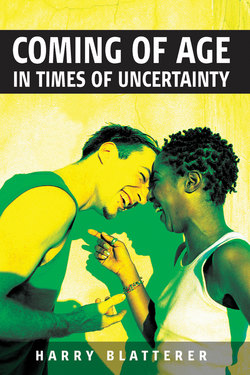Coming of Age in Times of Uncertainty

Реклама. ООО «ЛитРес», ИНН: 7719571260.
Оглавление
Harry Blatterer. Coming of Age in Times of Uncertainty
Отрывок из книги
COMING OF AGE IN TIMES OF UNCERTAINTY
Harry Blatterer
.....
As Eisenstadt (1971: 30) maintains, adult status “coincides with the transition period from the family of orientation to that of procreation, as it is through this transition that the definite change of age roles, from receiver to transmitter of cultural tradition, from child to parent, is effected.” The social validation attained through parenthood is palpable in everyday interaction. Outings with children often involve conversations with strangers, previously perhaps a rarity. In the supermarket, at the bus stop, in the park; there always appears to be someone willing to share their experiences, wanting a peek at your baby, encouraging or reprimanding your particular style of child rearing, commenting on the difficulties of work/life balance. To paraphrase a respondent (with sociological training) in my sample who had recently been “catapulted” into twin fatherhood, this is “social integration at its most intimate.” Particularly in the post-Second World War era, adulthood and family life were inextricably bound together in the social imagination. As Furstenberg et al. (2004: 35) put it with reference to the United States: “By the 1950s and 1960s, most Americans viewed family roles and adult responsibilities as nearly synonymous. In that era, most women married before they were 21 and had at least one child before they were 23. For men, having the means to marry and support a family was the defining characteristic of adulthood, while for women, merely getting married and becoming a mother conferred adult status.”
Many of us remember the question “what do you want to be when you grow up?” when “be” really meant “do.” Work—showing that you are capable of “paying your own way,” “pulling your weight,” contributing to the family and to society independently of state or parents—is another commonsense marker of adulthood. Stock phrases such as “wait 'til you're out in the real world” and “welcome to the real world” are historically framed. Since the completion of the process of differentiation that assigned children their place in school and adults their place in work (Gillis 1981; Mitterauer 1992; Perrot 1997), adulthood is also partly defined by independence gained through participation in the “work society” (Offe 1984).
.....